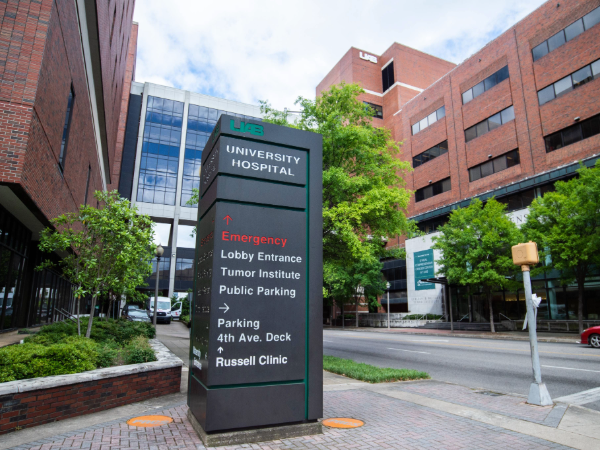Robert Hollis, M.D., MSPH , assistant professor of the UAB Division of Gastrointestinal Surgery, and Ridley Brown, BSN, RN, oncology navigator at the O'Neal Cancer Center, have been featured in the UAB MedCast episode: “What is the National Accreditation Program for Rectal Cancer (NAPRC) and why does it matter?”
, assistant professor of the UAB Division of Gastrointestinal Surgery, and Ridley Brown, BSN, RN, oncology navigator at the O'Neal Cancer Center, have been featured in the UAB MedCast episode: “What is the National Accreditation Program for Rectal Cancer (NAPRC) and why does it matter?”
In the podcast, Hollis further explains that colorectal cancer is a term that includes two very different diseases — colon and rectal cancer. While colon cancer has a very straightforward treatment regimen, the care for rectal cancer is more complex.
The NAPRC was created to support facilities nationwide in implementing standard care practices for all patients with rectal cancer and to ensure that each patient is discussed in a multidisciplinary meeting, so everyone receives high-quality, evidence-based care. During these meetings, Brown navigates patients and ensures that all tests are accessible for providers to review and get a full picture before making an informed and conjoint decision about the patient's treatment plan.
UAB and the O’Neal Comprehensive Cancer Center received NAPRC accreditation in 2025 after a multi-year process of developing systems and adherence to process standards to meet NAPRC requirements. UAB is one of two hospitals in the state and the only hospital in Birmingham with NAPRC accreditation. Hollis says, “I believe NAPRC standards enables us to provide the highest level of rectal cancer care by ensuring systematic multidisciplinary decision making.”
In addition to his local involvement with the NAPRC, Hollis was appointed as the Society for Surgery of the Alimentary Tract representative to the NARRC, starting in October 2025 and serving in the role until October 2028. In this capacity, Hollis will participate in and contribute to the work of the NAPRC’s Member Council.
"I am honored to represent the Society for Surgery of the Alimentary Tract within the NAPRC and to serve as an advocate for the NAPRC at UAB. I am excited to advocate for increased efficacy, standardized care, and better outcomes based on the vital research promoted and supported by the SSAT. Our primary goal is to make a meaningful impact on the lives of thousands of patients, starting at UAB and impacting other institutions nationwide," said Hollis.
Listen to the full UAB MedCast episode here.